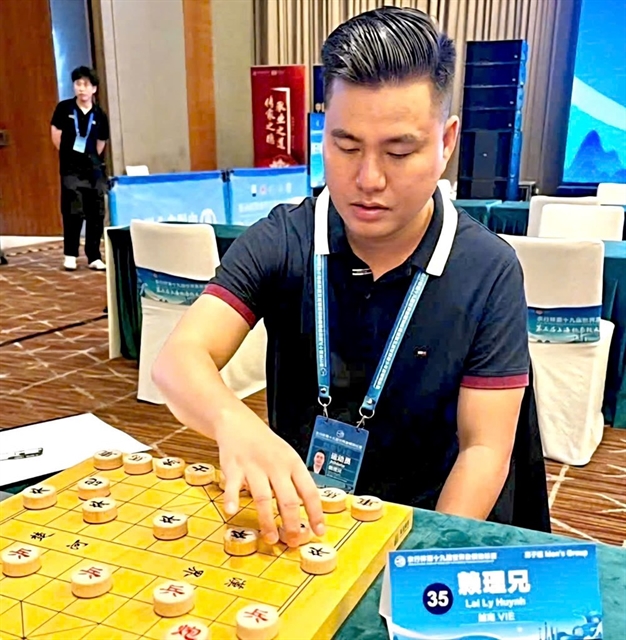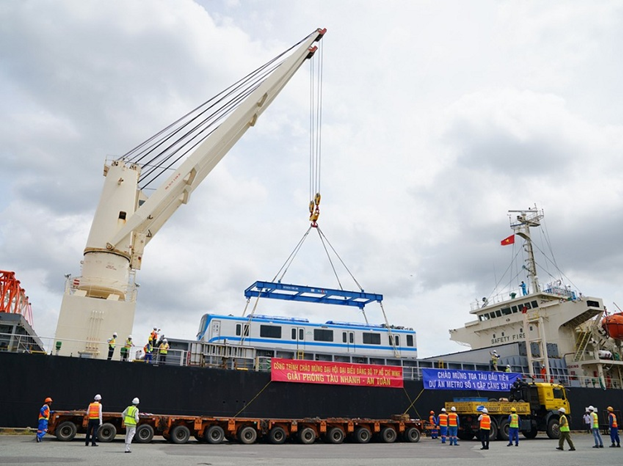 Life & Style
Life & Style

A group of Indian dancers are performing Odissi, a kind of ancient Indian dance, in major cities in Việt Nam to celebrate the 78th anniversary of India’s Independence Day.
The dancers have performed in Hải Phòng City, Vĩnh Phúc Province, Hà Nội City and Huế City. They will move to Biên Hòa City on August 23 and HCM City on August 25.
Việt Nam News reporter Lê Hương talked to dancer Alpana Nayak about the classical dance form.
She’s an Odissi dancer and the founder and president of an organisation called the Association for Learning Performing Arts and Normative Action.
Alpana has performed Odissi dance solo, along with her group, in most of the major cities and cultural festivals of India. She has also performed across many countries of the world.
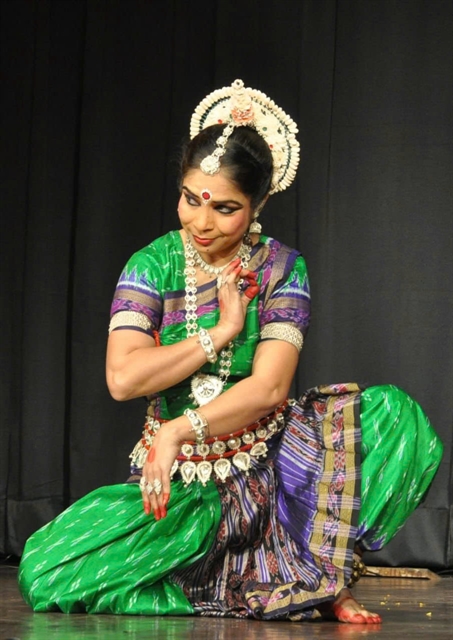 |
| Artist Alpana Nayak on stage. Photo courtesy of the Indian embassy |
She has taught Odissi and different Indian folk dances in several cities in India, England, Japan, Bhutan, Malaysia, Mongolia, Russia, and Sri Lanka.
What is the significance of Odissi dance in Indian culture? Are there any similarities between this kind of dance and Vietnamese folk dance?
Odissi dance is the oldest classical dance form in India.
In India, we have eight classical dances and Odissi is the oldest. I have been learning and presenting Odissi dance for more than 50 years.
Odissi is basically a very graceful lyrical dance. It is based on yoga and meditation, so it also helps keep a dancer fit.
When I got the invitation from Việt Nam I was very excited because this was my first visit to Việt Nam.
But as I watched Vietnamese dances and songs, I realised there are some similarities between our dance form and Vietnamese dance form which is graceful like Odissi dance.
I saw the videos of your traditional dances the girls move like this and their hands like this, which is similar to the way we move in Odissi.
So we call it 'dola hasta'.
So it's the first thing that strikes me is the movement, graceful movement of a girl.
Vietnamese dances and folk arts are also based on nature, maybe I am wrong but I have seen this in flowers, rivers and birds.
I am going to present an Odissi dance set to a traditional Vietnamese song, my first experience of combining the two.
Of course, I have tried before with other forms so I have presented Odissi dance set to a Sinhalese song.
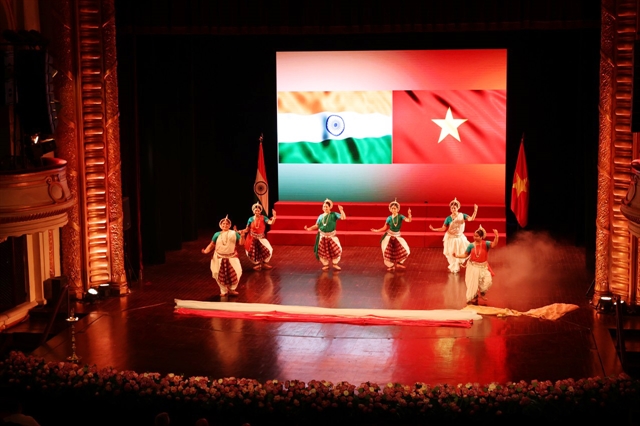 |
| The artists perform Odyssi dance at the Hà Nội Opera House on August 15. VNS Photo Lê Hương |
I have presented a ballet fusion ballet of Odissi and Kandyan dance of Sri Lanka which was called Maitree Padma Sambhav.
It was a very, very grand, successful presentation.
Then we presented Padma Sambhav in Bhutan.
Again it was a fusion of Odissi and Bhutanese dances.
Then in 2018, I went to Moscow, Russia. There I also presented Kalinka which is a very famous traditional Russian song Kalinka like in Odissi style and Baghdadi also presented in Odissi style.
So I love to experiment with the differences, like the fusion of different cultures and different dance forms.
Today with presenting a Vietnamese song, I don't know how people will accept it but I will try my best.
I will say it's like the friendship between India and Việt Nam last for almost 52 years.
We have a close friendship with Việt Nam.
So we are going to present a small dance on Vande Mataram which is our national song and national song of India.
But in Vande Mataram also at the end, we are trying to give a message of friendship between India and Việt Nam.
Please tell me about the contents of the Odissi dance?
All our traditional dances are based on Ramayana, Mahabharata and Purana, which are very old texts. But nowadays, as a dancer and choreographer, we have tried to innovate and we are taking on social themes to present on our stage.
How do you keep this dance flourishing among the youth today?
In India, I believe, like all over the world, the young generation they are very fascinated with fast movement and breakdance, salsa… all these things. But luckily, I’m very lucky and other dancers of classical dances of India, we are very lucky in that almost every country in the world has shown interest in our classical dances of India.
So I believe there is not a single country in the world now, where there are no classical dancers and Indian dance students.
I have also had many students in eight - nine countries in the world.
Twenty years ago you would have said that the young generation they are not interested in learning classical dance. But now you will see all my students and group members, they are very young and aged 20-30 years old.
And they have been learning this classical form for the last 20 years. VNS
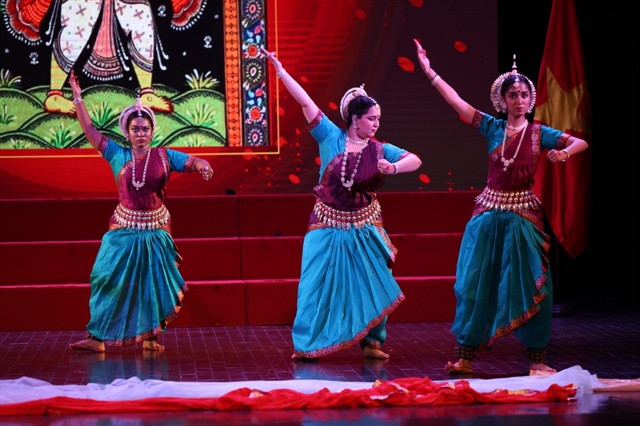 |
| The ancient dance of India has many movements like those of Vietnamese folk dances. Photo courtesy of the Indian embassy |

